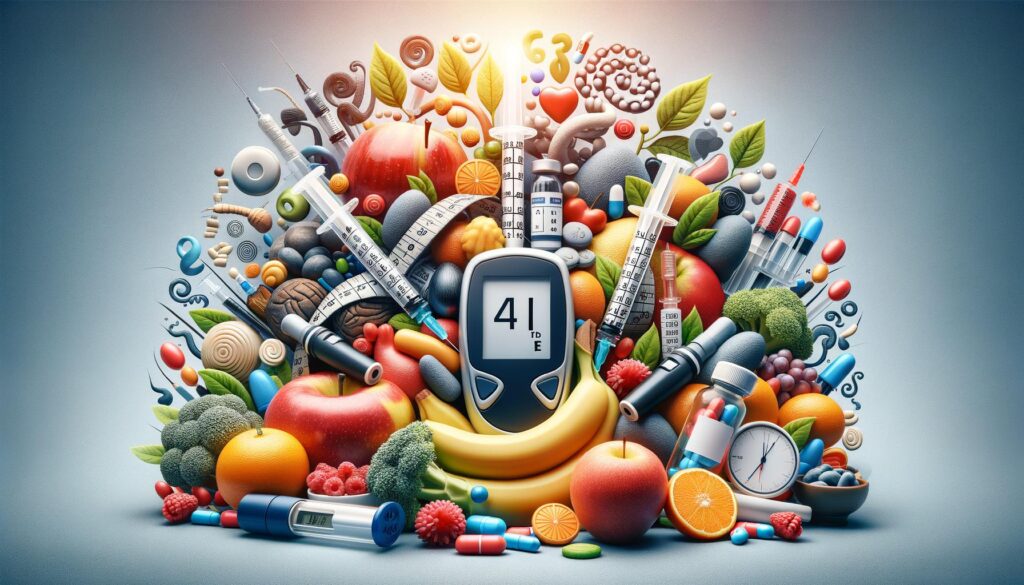A Comprehensive Medicine Guide for Managing Diabetes

Understanding Diabetes and Its Treatment
Diabetes is a chronic condition that affects how your body processes blood sugar. Whether diagnosed with type 1 or type 2 diabetes, managing blood glucose levels is crucial for maintaining overall health. Medications can play a significant role alongside lifestyle changes like diet and exercise. It’s important to understand how these medicines work, potential side effects, and their role in a broader diabetes management plan. By delving deeper into treatment options, individuals can better navigate their diabetes journey.
Types of Medications for Diabetes
There are various medications available to help manage diabetes, each with unique properties and purposes. These medications often target different aspects of blood sugar control:
- Insulin Therapy: Essential for individuals with type 1 diabetes and sometimes necessary for those with type 2, insulin helps in regulating blood glucose.
- Metformin: Commonly prescribed for type 2 diabetes, metformin helps improve the effectiveness of insulin and reduces glucose production in the liver.
- Sulfonylureas: These stimulate the pancreas to release more insulin and are especially useful for those whose bodies need an insulin boost.
- SGLT2 Inhibitors: Helping to eliminate excess glucose through urine, these medications offer another mechanism for blood sugar control.
Understanding these medications and having discussions with healthcare professionals can aid in implementing the most effective treatment plan.
The Role of Lifestyle in Diabetes Management
While medications are crucial, lifestyle adjustments cannot be overlooked when managing diabetes. These changes can significantly enhance the effectiveness of medication:
- Balanced Diet: Monitoring carbohydrate intake, opting for whole grains, and balancing meals can help in maintaining steady blood sugar levels.
- Regular Exercise: Physical activity boosts insulin sensitivity, enabling cells to use blood glucose more efficiently.
- Weight Management: Achieving and maintaining a healthy weight is associated with better blood sugar control and reduced medication reliance.
- Monitoring: Regular blood sugar checks help in adjusting lifestyle habits and medication for optimal control.
Combining medication with these lifestyle changes paves the way for more effective diabetes management.
Potential Side Effects and Challenges
Like any medication, diabetes treatments may have side effects or require specific considerations. Common side effects include gastrointestinal issues with metformin or low blood sugar with insulin and sulfonylureas. It’s important to:
- Stay informed about possible reactions.
- Keep track of symptoms and discuss them with healthcare providers.
- Regularly review treatment plans for necessary adjustments.
Understanding and managing these challenges through communication with healthcare teams ensures that the benefits of diabetes medications are maximized.
Looking Ahead: The Future of Diabetes Treatment
Advancements in diabetes treatment continue to evolve, offering hope for more effective management strategies. Recent innovations include continuous glucose monitoring and artificial pancreas systems, providing real-time data and insulin delivery adjustments. These technologies aim to offer a more personalized treatment approach, lessening the burden on patients while enhancing quality of life. Staying informed about emerging treatments can empower individuals and make diabetes management less daunting.
Conclusion
Managing diabetes effectively involves a combination of informed medication use and lifestyle modifications. Awareness and education about available treatments, coupled with proactive health management strategies, enable individuals to maintain control over their condition. Continuous dialogue with healthcare providers and adaptation to new technologies can further enhance diabetes care, leading to improved outcomes and better quality of life.
